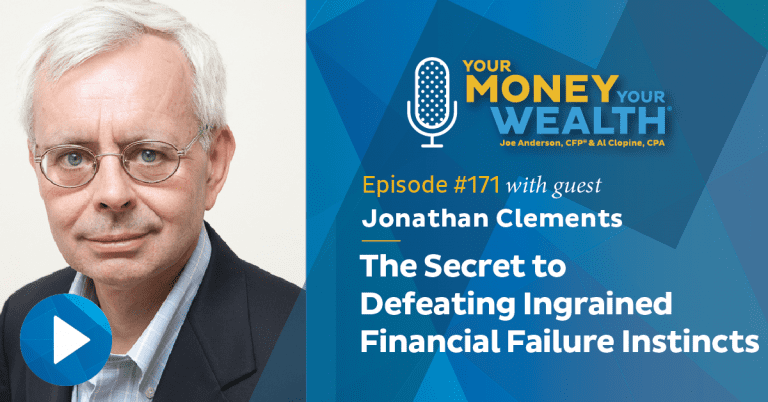On Friday, March 22, 2019, part of the yield curve for Treasury bonds inverted. An inverted yield curve is considered an indicator of an impending recession. What should investors do now? Pure Financial Advisors’ Director of Research, Brian Perry, CFP®, CFA® explains.
Listen to the Your Money, Your Wealth® podcast episode on The Secret to Defeating Ingrained Financial Failure Instincts:
Transcript:
Lately, we’ve been hearing more and more about what’s called the inverted yield curve. And so a yield curve is simply taking the maturities of the various Treasury Bonds, taking their yields, and plotting them out in a graph. The shape of that is often upward sloping and resembles something like an upside-down fish hook. However, on rare occasions it becomes inverted. The longer you lend your money for, the less return you get. Historically, that’s been an indicator of a slowing economy, and an economy that may fall into recession. Even when the yield curve does invert, if you do go into a recession, there is a gap between when the economy goes into recession versus when the yield curve inverted, on average, of a year and a half. Tough to time markets given that time lag, particularly because in the interim, the average additional increase of the stock market has been 15 percent. So in other words, you see the yield curve invert, you say, “wow, there’s going to be a recession coming, let me get out of the market,” and in the meantime it’s a year and a half later and the market’s gone up 15 percent before perhaps the economy slows down. Not necessarily a recipe for investment success.
I was listening to the podcast recently with Joe and Big Al. They had Jonathan Clements on and Jonathan said, “Unless you think that the economy will never grow again, that we are going to be stuck here forever, we’re never going to see further improvements in our standard of living, we’re never going to see companies grow again, why would you get out of the stock market? I mean the stock market, in the end, is a reflection of global economic growth – as long as the economy grows, the stock market will rise.” Now that’s advice I can agree to.
Let me now turn to the words of the famous mutual fund manager Peter Lynch: “Far more money has been lost by investors preparing for corrections, or trying to anticipate corrections, than has been lost in the corrections themselves.” I can’t think of a better note to end on. But if you do want more information on this or any other financial topic, contact us at Pure Financial.













